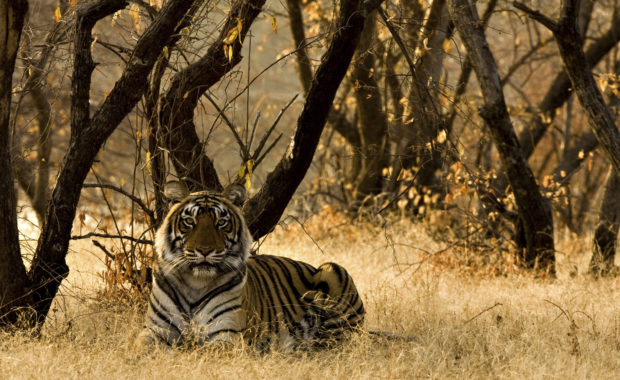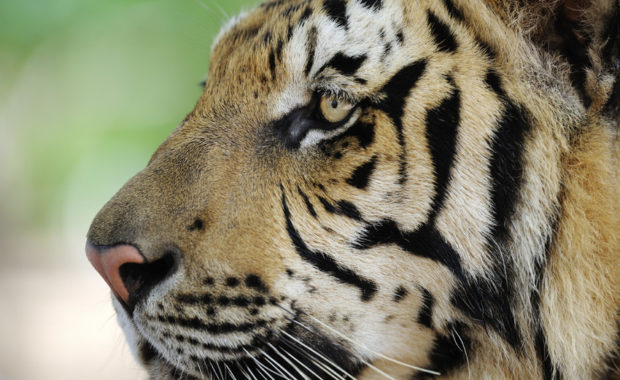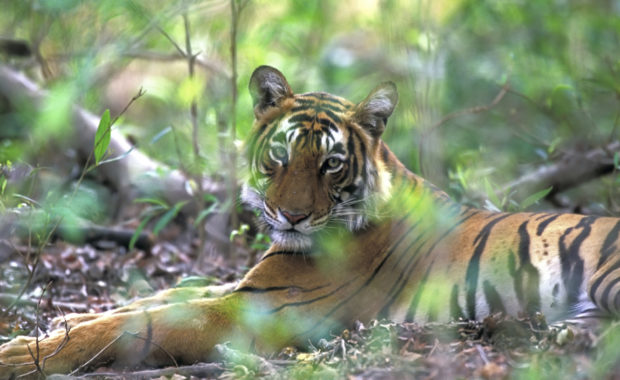Only an estimated 3,800 tigers remain in the wild
A century of poaching and habitat destruction have decimated the global tiger population, which has declined from 100,000 to an estimated 3,800. Tiger range has been reduced by 93%, and 3 of 9 subspecies have already gone extinct. Despite international legal protections, approximately 150 wild tigers are killed annually to satisfy the demand for illicit products. These range from traditional medicines and virility tonics made from tiger bones, to decorative items made from their pelts, claws and teeth.
- -93%
Tiger range has been reduced by 93%. - 150
Approximately 150 wild tigers are killed annually to satisfy demand for illicit products. - 3
Of the 9 tiger subspecies, 3 have gone extinct. Tigers remain in only 13 countries.
Making an impact
Although most prevalent in Mainland China, demand for tiger products also exists in Japan, Singapore, South Korea, and the United States. WildAid is part of the International Tiger Coalition, which is comprised of 42 environmental, zoological, and animal protection groups. Together, the coalition is calling for a permanent ban on the trade in tiger parts and products. To reduce demand for tiger products, WildAid uses our unique communications model with a primary focus on China. We collaborate across all sectors of Chinese society; working with government, business, media partners, and celebrities to encourage attitudinal and behavioral change to reduce demand for tiger products.
In partnership with Shanghai Media Group, WildAid produced a 50-minute television documentary about tiger conservation starring three prominent Chinese musicians: The Voice of China coach Liu Huan, and two of his protégés, who are The Voice winners, Wei Lu and Huo Zun. In the film, the trio travels to India to see tigers in the wild, to learn about the local cultural significance of tigers, and to understand the threats to their survival.









